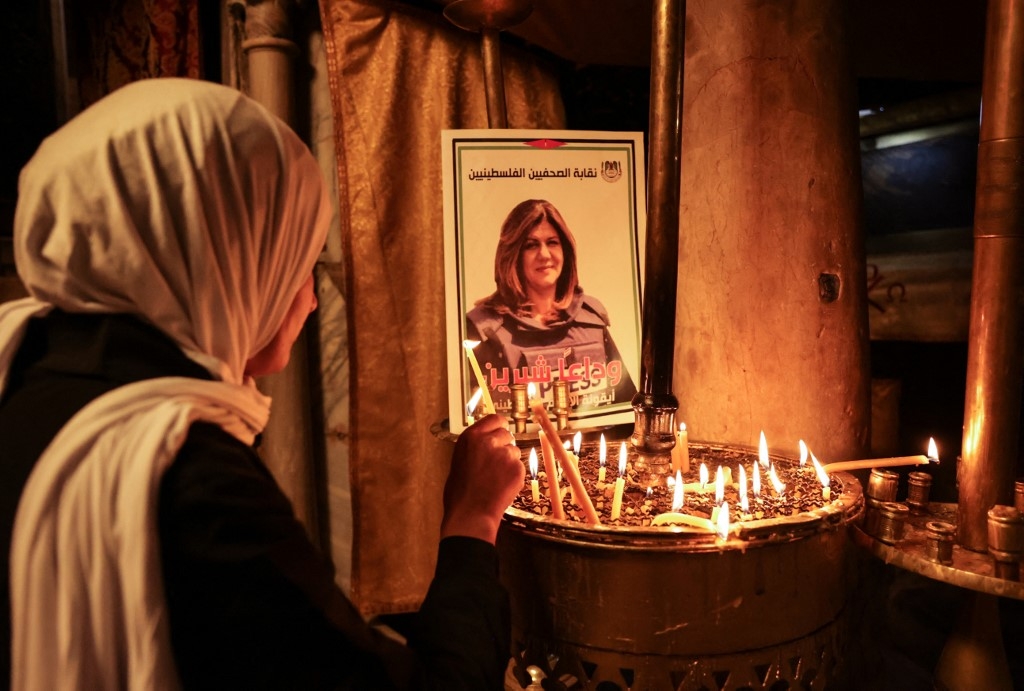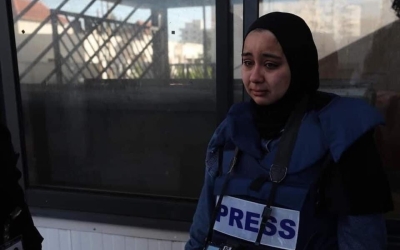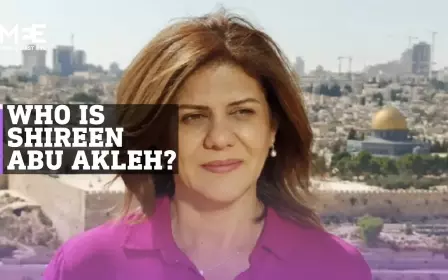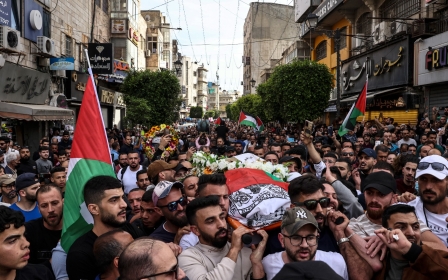Shireen Abu Akleh killing: 'She was our gateway to events in Palestine'

Taher Herzallah grew up watching Al Jazeera every morning in his California home. It was Shireen Abu Akleh's voice he could hear when he was sat at the breakfast table, or when his family were together in the living room with guests over.
For Herzallah and many other Palestinian Americans who watched her on television, Abu Akleh, in a way, became almost their aunt. She was someone they trusted deeply, and her death on Wednesday has hit them hard.
"We trusted Shireen because she was always there. We trusted Shireen because she would look for the bodies of martyrs from underneath the rubble of destroyed buildings alongside their mothers," he told Middle East Eye. "Shireen was our daily gateway to Palestine."
"We needed her voice to comfort us when receiving the most shocking news of daily life in Palestine. This is why the news of her assassination today has shaken us to our core. Today, we not only lost a journalist, but we lost a family member, a daughter of Palestine."
'You could tell that she wasn't just reporting on the conflict as part of her job, but she felt like this was something that she could do for her people'
- Omar Suleiman, imam
Wearing a press jacket, Abu Akleh, a Palestinian American journalist with Al Jazeera Arabic for the past 25 years, was shot in the head by Israeli snipers during her coverage of an Israeli incursion in Jenin in the occupied West Bank.
New MEE newsletter: Jerusalem Dispatch
Sign up to get the latest insights and analysis on Israel-Palestine, alongside Turkey Unpacked and other MEE newsletters
To Nerdeen Kiswani and other Palestinian Americans miles from their homeland, Abu Akleh was iconic. She represented home.
Kiswani recalls her dad often imitating Akleh's signature signoff: "Shireen Abu Akleh, Al Jazeera."
"She didn't sugarcoat the occupation. For many Palestinians, we see the value of every single form of resistance in Palestinian society, and she showed us that journalism is also a form of resistance," Kiswani said.
"She died a martyr. It's not just people who are fighting back with stones and rocks and guns, but also people who are fighting back with cameras."
'The heart and soul of Palestine'
Abu Akleh's most renowned reports covered the Israeli military operations in the occupied West Bank during the Second Palestinian Intifada between 2000-2005. Her frontline reporting was seen all around the world.
Omar Suleiman, a prominent Palestinian American imam, said he had not overcome the "shock of the cold-blooded murder".
Abu Akleh's voice was a constant in his home. He said he felt like he knew her from watching her reporting all these years. But what made her unique, he said, was that even after the expansion of social media, her voice remained more vital than ever.
"Before social media and the various forms of reporting that is coming out of Palestine, there was a time when Al Jazeera was the only outlet for us as Palestinian Americans to keep up with the news. With her, she was the constant face," he told MEE.
"On top of that, with the fact that she was Palestinian, the fact that she grew up in that reality, and was also an American… just made it authentic and accessible," he said.
"You could tell that she wasn't just reporting on the conflict as part of her job, but she felt like this was something that she could do for her people while she was living under that reality herself."
For Ramy Aqel, a human rights attorney based in New York, her voice reminded him of home.
"She's the iconic journalist who represented the real picture. She was like the heart and soul of Palestine. The way she presented the news was just very honest," he said. "I grew up watching her on TV holding the microphone and standing on the frontline. She never hesitated."
"Her voice is so familiar. It sounds like home, you know? And I was hearing it today and it made me cry."
Middle East Eye delivers independent and unrivalled coverage and analysis of the Middle East, North Africa and beyond. To learn more about republishing this content and the associated fees, please fill out this form. More about MEE can be found here.





